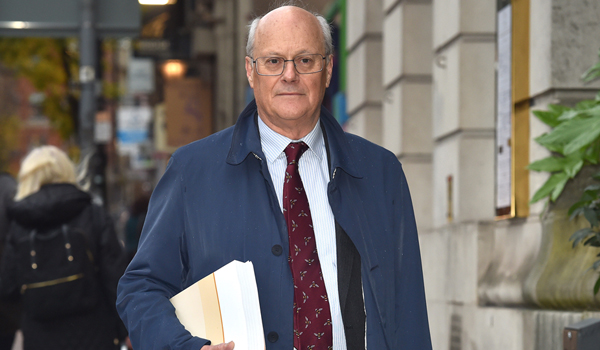Inquiry criticises failures of emergency services on night of Manchester bombing
An inquiry into the Manchester Arena bombing has found that the response of the emergency services was “far below the standard it should have been”.
Twenty-two people were killed and more than 1,000 injured when a suicide bomber detonated his device at the Arena on May 22, 2017, at the end of a concert by the singer Ariana Grande.
In his second report of the public inquiry into the atrocity published on Thursday (November 3), inquiry chair Sir John Saunders said while the heroism shown by very many people that night was striking, “significant aspects of the emergency response went wrong and should not have happened”.
“Some of what went wrong had serious and fatal consequences for those directly affected by the explosion,” he said.
In particular, the coordination of the response to this atrocity by Greater Manchester Police (GMP) was inadequate with a failure to establish proper command and control from the outset undermining an effective multi-agency response.
Sir John added: “I have seen the terrible footage from the CCTV and body-worn video cameras of the scene of devastation in the City Room (a publicly accessible area adjacent to the Arena bowl. The description of that area as being like a ‘war zone’ was used by a number of witnesses. That is an accurate description.
“To enter the City Room or remain there to help victims required great courage.
“In addition to the individual acts of courage, there were some parts of the emergency response that worked well.
“British Transport Police (BTP) officers who were present in the Victoria Exchange Complex at the time of the explosion responded immediately and rushed to the City Room.
“More BTP officers from elsewhere mobilised urgently. GMP also mobilised a very significant number of firearms officers and unarmed officers.
There were more than sufficient rank and file police officers from both GMP and BTP to assist with the response.
“I am satisfied that the way in which the firearms officers acted meant that, had there been a threat from marauding terrorists with firearms, it would have been neutralised very quickly. I was impressed by the professionalism of those officers.
“I have no doubt that lives were saved by the emergency response.”
However, Sir John said there had been failures to prepare and by no means all the mistakes that were made were inevitable.
“There had been inadequacies in training,” he said. “Well-established principles had not been ingrained in practice.
“Why was that? Partly it was because, despite the fact that the threat of a terrorist attack was at a very high level on May 22, 2017, no one really thought it could happen to them. This was the case even though such a high-profile concert in a very large arena might obviously attract the attention of a terrorist intent on killing and injuring as many people as possible.
“Looked at overall, and objectively, the performance of the emergency services was far below the standard it should have been. GMP did not lead the response in accordance with the guidance that it had been given or parts of its own plans.
“Greater Manchester Fire and Rescue Service (GMFRS) failed to turn up at the scene at a time when they could provide the greatest assistance.
“North West Ambulance Service (NWAS) failed to send sufficient paramedics into the City Room, did not use available stretchers to remove casualties in a safe way, and did not communicate their intentions sufficiently to those who were in the City Room.”
Sir John’s report highlighted 12 key failures of emergency response to Manchester Arena attack:
They were:
- A lack of communication between emergency responders, both through the act of physically co-locating at a single multi-agency RVP (rendezvous point) and via radio;
- A failure to have available either a multi-agency control room talk group or to set one up on the night. This would have allowed control rooms to speak to each other directly;
- GMP’s force duty officer (FDO) Inspector Dale Sexton did not inform other emergency services of his declaration of Operation Plato – a national pre-determined response to a marauding armed terrorist, or keep it under review.
- The FDO and others in GMP failed to consider zoning the scene, following the declaration of Operation Plato, in the early stages of the response;
- No forward command post, for senior officers to liaise, was set up. This was principally the responsibility of GMP, the inquiry found;
- Delays by NWAS in getting ambulances and paramedics to the scene;
- Failure to send members of NWAS’s specialist Hazardous Area Response Team into the City Room foyer, the scene of the explosion, to assist with triage and life-saving intervention of casualties;
- Failure to send non-specialist paramedics into the City Room to assist with triage;
- A failure to get stretchers to the City Room to help evacuate the injured;
- GMFRS did not arrive on scene and make any contribution in removing the injured that its officers could have done;
- Staff at North West Fire Control did not pass on important information to officers in GMFRS; and
- No-one in a senior position at GMFRS took a grip of the situation during the critical period of the response.


